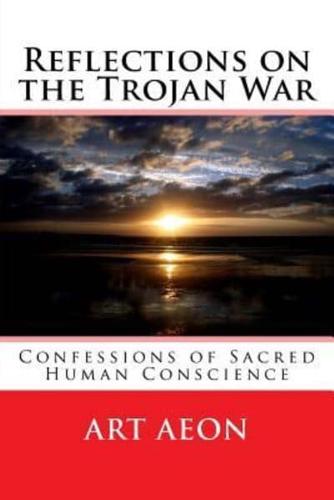Publisher's Synopsis
Reflections on the Trojan War: Confessions of Sacred Human Conscience is a fictional narrative poem in tercet stanzas. It unfolds the imaginary dialogues between the character Homer-Outis, the legendary ancient Greek author of the Odyssey, and the character Odysseus, the protagonist of the Odyssey, about the actual human causes of the enigmatic and tragic Trojan War (rather than its mythical attributions to the ungodly emotions of the Olympian goddesses and gods) in a numinous dream of the great epic poet. It consists of two parts: Book 3: Regrets of Nestor and Odysseus Book 4: Final Revelations of Helen "Reflections on the Trojan War: Confessions of Sacred Human Conscience" is a sequel to "Odysseus and Penelope: Following the Odyssey of Homer." They are the beginning and the middle parts of an imaginary narrative poem: An Odyssey into One's Own Sacred Conscience. [A] Book 3: "Regrets of Nestor and Odysseus" is a sequel to Book 2: "Exile of Odysseus with Penelope" in the preceding narrative poem; "Odysseus and Penelope: Following the Odyssey of Homer." It unfolds imaginary dialogues among the characters, Nestor, Odysseus, and Penelope about (1) the plausible human causes of the Trojan War; (2) what happened during its first nine years; and (3) how Troy was actually sacked in the final tenth year of the War. [B] Book 4: "Final Revelations of Helen" is concerned with the following questions: (4) Why did Paris take a long voyage in a single ship from Troy to Achaea? (5) How did he meet with Helen, residing at Helos, a remote seaport in Sparta? (6) Why did Menelaus allow the alleged abduction of his wife Helen by a friendly foreign visitor Paris (who did not invade Helos with Trojan armada to abduct her)? (7) If Helen did elope with Paris to Troy, what were the actual reasons which impelled her to take such a dangerous, bold, and disgraceful action? The present fictional work attempts to look into the plausible human causes of the Trojan War behind the mythological veils of supernatural, inane, and absurd fables on the ungodly emotions of the Olympian goddesses and gods, conjured up by witless minstrels.























